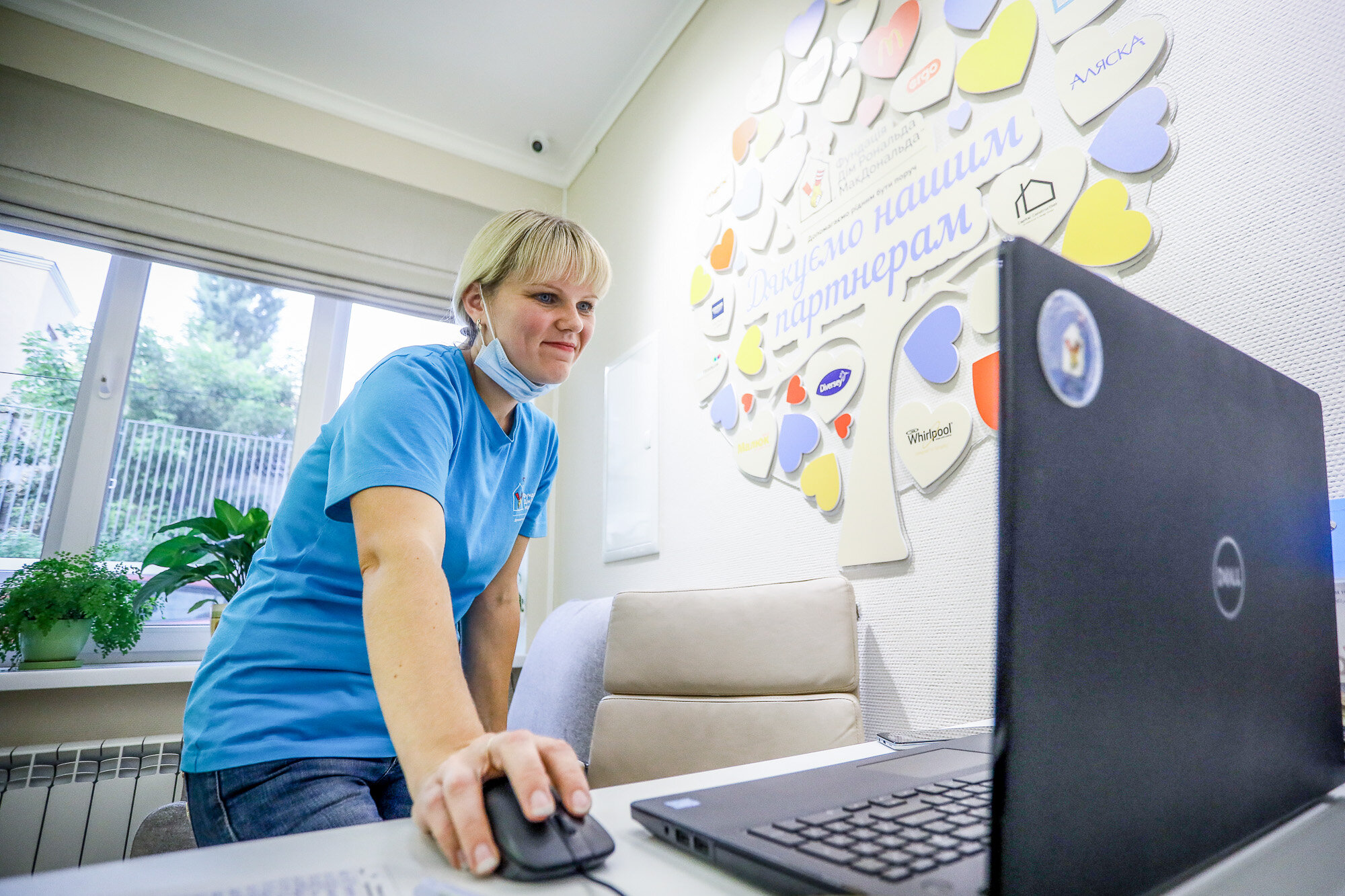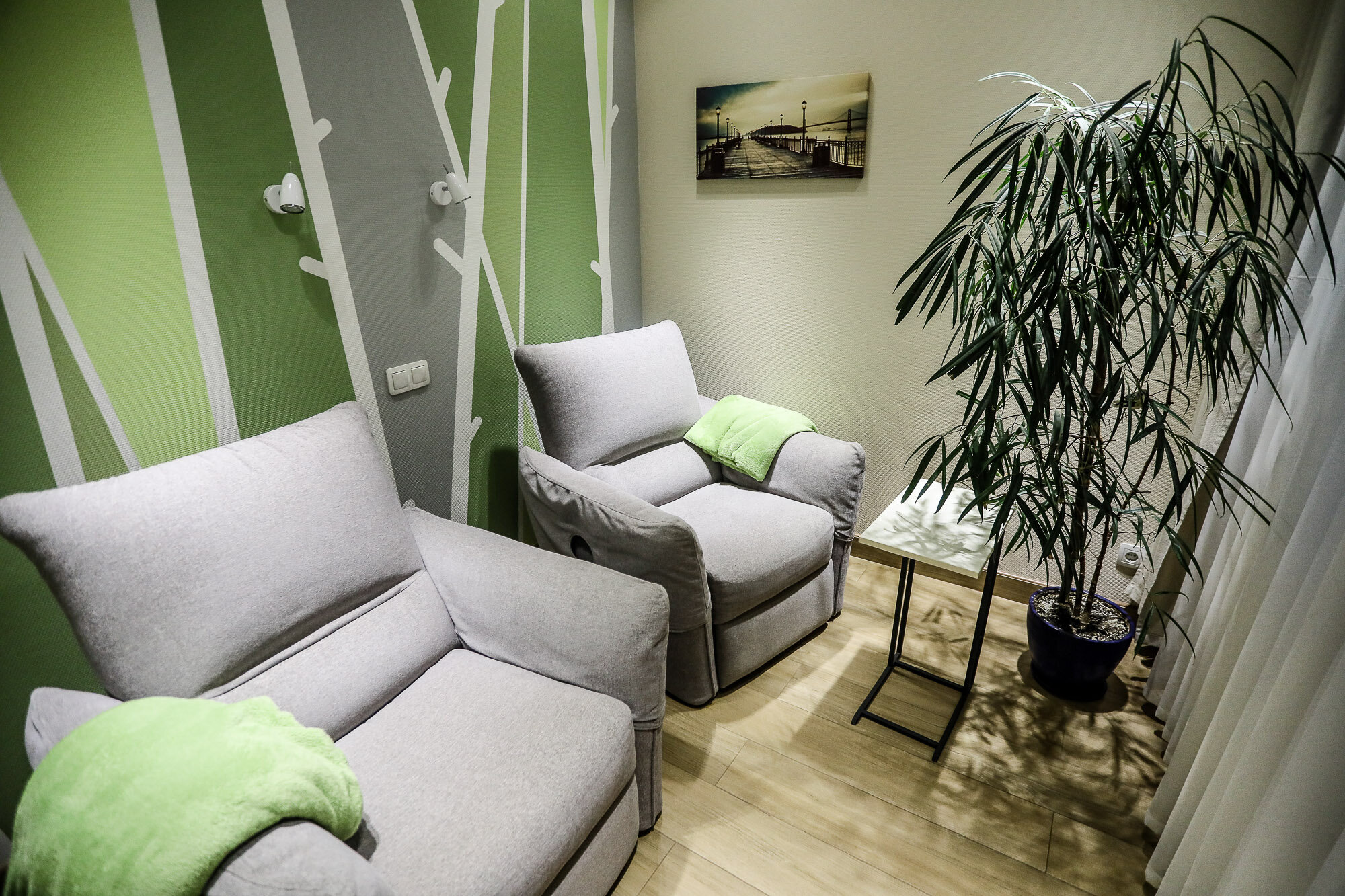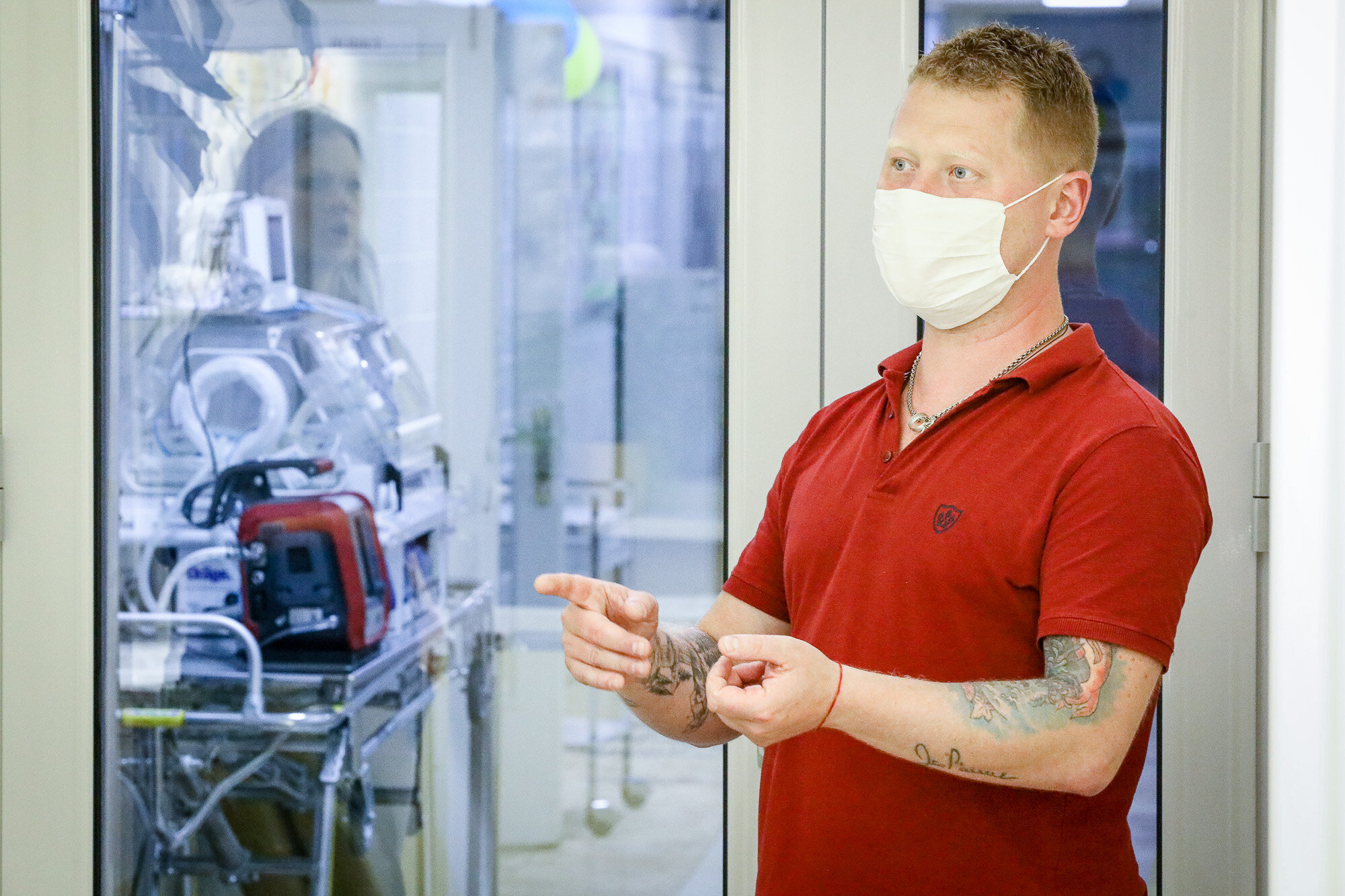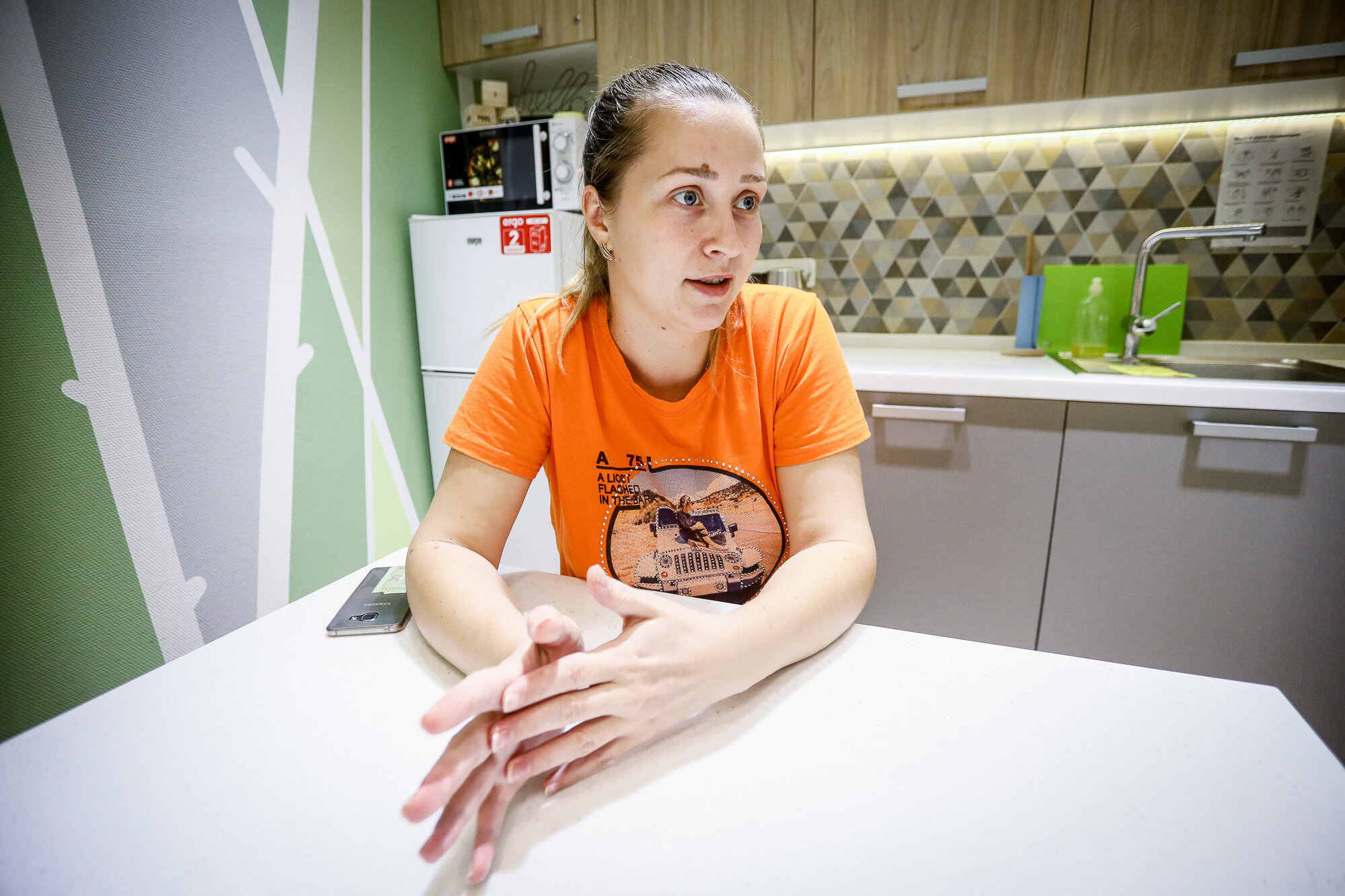Nothing about the outside of one of Kyiv’s Soviet-style state children’s hospitals, a building covered in faded gray tiles, indicates the comfort and friendly atmosphere inside.
But it’s exactly what parents feel when they cross the threshold of a so-called family room in one of the numerous buildings standing on the territory of Ukraine’s national children’s hospital Okhmatdyt.
Separated only by a glass door from the intensive care unit inside the building, the family room serves as a comfortable place where parents and relatives can stay for free for as long as they need while doctors save the lives of their kids — from nursing babies who weigh only 600 grams to executing complex surgeries.
Built just two years ago by the U.S. nonprofit Ronald McDonald House Charities, the room’s administrative personnel have recorded over 11,200 visits.
“While parents take care of their babies, we take care of parents,” said Galina Solovey, head of Ukraine’s branch of Ronald McDonald House Charities. “It’s the place where they can recharge their strength.”
A 65-square-meter family room in Kyiv is equipped with modern and comfortable furniture, a kitchen and even a separate place where nursing mothers can pump their milk.
Nevertheless, there is only one place like this in the hospitals of Ukraine’s capital, where around three million people live.
Neonatal anesthesiologist Andriy Lepatnikov, who has been working at Okhmatdyt for the past 13 years, is sure that every large children’s hospital and maternity hospital in the city needs such rooms.
“It’s so sad. I believe there should be 20 such rooms in Kyiv alone,” said Lepatnikov.
According to Ukrainian laws, only one adult can be placed with the child in the hospital, but it does not apply to intensive care units, where there’s no place for parents at all. In a best-case scenario, a parent is allowed to sit in a chair near the bed.
But when a child is in severe condition, mothers, who are often not local residents and come from smaller cities and villages, stay near their sick kids around the clock.
“These mothers have nowhere to go at all,” said Solovey.
Oleksandra Tonkonog has already been in Kyiv’s family room for three weeks since her 17-year-old daughter Polina was hospitalized in Okhmatdyt in severe condition.
Living in the city of Kaniv in Cherkasy Oblast, which is 133 kilometers south of Kyiv, Tonkonog was shocked when her youngest daughter fell into a coma allegedly after eating a watermelon in early August. Her kidneys began to fail. After being transferred to Okhmatdyt in Kyiv, she came out of a coma but is still going through intensive care.
“She is still in critical condition,” Polina’s mother Tonkonog said crying.
When it’s daytime, Tonkonog stays with her daughter in the nephrology intensive care unit. But she is glad to have a place to go to when it’s time to leave her child.
“I’m so happy that this hospital has such a room — I have a place where I can eat, bathe and sleep,” she said.
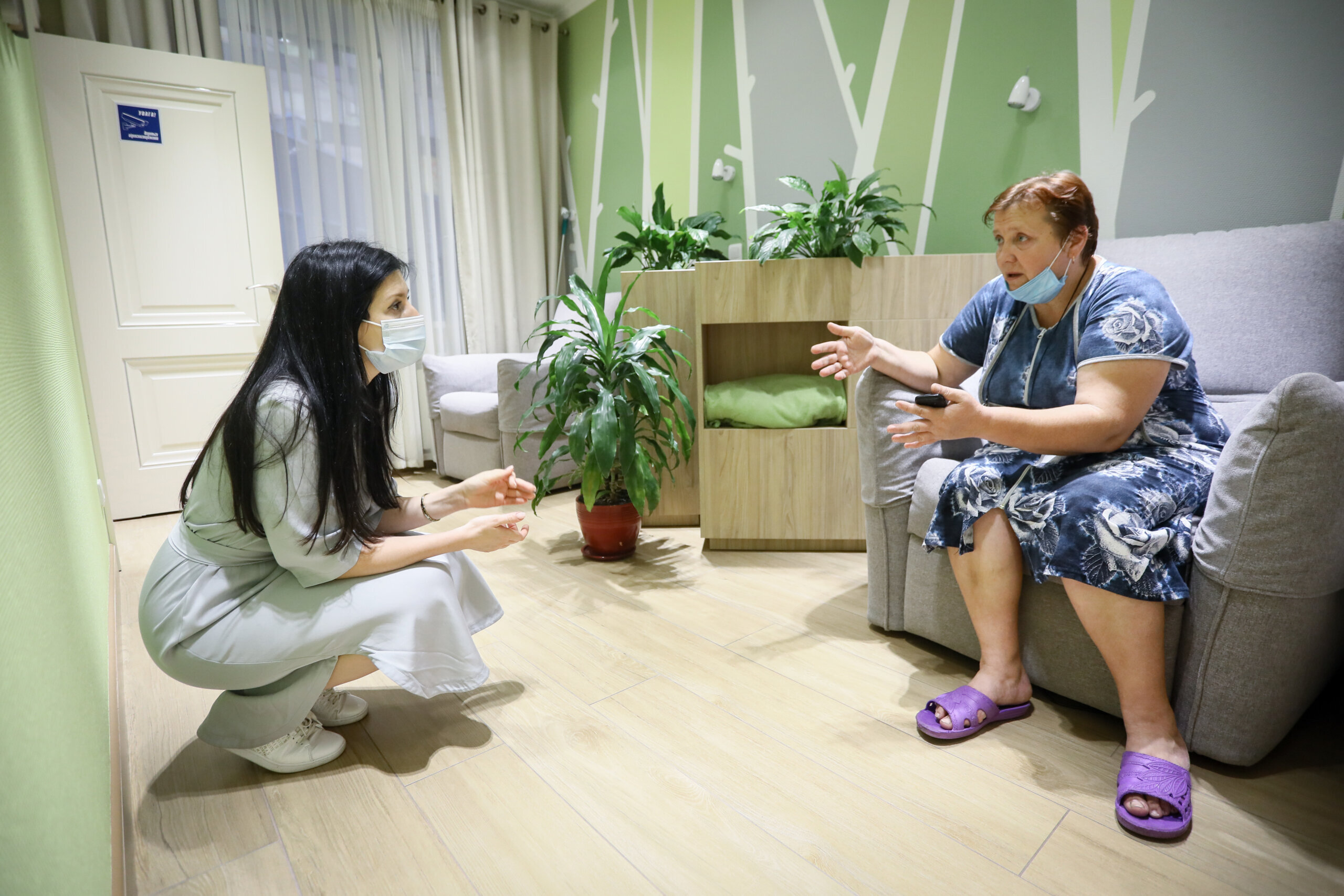
Oleksandra Tonkonog (R), mother of sick 17-year-old girl who stays in intensive care after a coma, talks to Galina Solovey in the Family Room on Sept. 4, 2020. (Oleg Petrasiuk)
Charity’s first steps
Ronald McDonald Charities has been operating in 65 countries for 45 years, but in Ukraine it has been present only for the past four years.
Over this period, the foundation has raised enough money to build five family rooms in children’s hospitals across the country — in the cities of Lviv, Vinnytsia, Kyiv, Sumy, and Kharkiv.
The sizes of the family rooms in various cities range from 45 to 180 square meters. On average it costs $50,000 to build one room from scratch and around $35,000 per year for its maintenance, including the salaries of four to five staffers in each room.
Before the room in Kyiv was open,, some parents and relatives from distant Ukrainian villages were forced to look for a place to stay in the city — and it could be tough.
“We had a grandmother who spent nights at the railway station until she accidentally found out about our room,” said Yulia Dzyba, one of the administrators of Kyiv’s Ronald McDonald room.
“It hurts so much to hear such stories and they are doing it with only one goal — to be around their babies.”
But the major goal is not only to build a comfortable place for parents, but to bring global standards of a family-oriented approach into the outdated Ukrainian medical reality.
“No one teaches doctors how to be empathetic, to develop soft skills and to communicate with parents,” said Solovey. “It’s hard but this approach needs to change and the foundation decided to take on this mission.”
The major donor of such family rooms in Ukraine is U.S. fast food chain McDonald’s Corporations. Altogether it donated Hr 35 million, or around $1.4 million, to family rooms in Ukraine.
Other partners of the foundation, like coffee producer Jacobs, mineral water brand Alaska, manufacturer of home appliances Whirlpool and many others also help to fill the rooms with their products.
“It is so nice that our businesses are joining the project so that we can save money and build new family rooms,” said Solovey.
In total, 25 Ukrainian hospitals sent their requests for the foundation to make the rooms. But Ronald McDonald Charities stopped actively encouraging hospitals to apply for rooms because it is “currently unable to meet the demand.”
While the foundation is currently choosing between the cities of Dnipro and Odesa to build the next room, there are no plans to build a multi-story building near hospitals for parents and kids to stay, like in neighboring Poland, where the foundation has worked for more than two decades so far. The reason is simple — a lack of money.
“In Ukraine, it’s still a dream,” said Solovey.
Healing architecture
It is impossible to predict when trouble will happen to a child, but when it does and the child needs to be hospitalized for a long time, comfortable conditions and close proximity between the child and the parents can help decrease stress.
For Maryna Chop, 29, who gave birth to her son Dima just two months ago, it’s a great relief to be so close to her baby. She came to Okhmatdyt from Khmelnytsky, a city more than 300 kilometers west of Kyiv, after it turned out that her boy’s windpipe, a major part of the respiratory system carrying air in and out of the body, is very weak and he cannot breathe on his own.
While doctors are still testing her son and deciding whether he needs surgery, Chop can stay near the intensive care unit.
“I can help nurses change diapers or feed him,” said Chop. “The conditions… and (administrators) are very good here.”
According to Solovey, all rooms are made in a “healing architecture” manner to help people cope with their children’s diseases.
The major rule is to create a “like-at-home” environment, where parents can be as relaxed as possible to restore their emotional resources and to “give their strength and support to their children.”
After two years of observations, Lepatnikov says that children recover faster when their parents are nearby.
“Mothers shouldn’t worry because children have a very strong connection with them (and can feel their stress),” said Lepatnikov. Keeping moms calm “really helps kids.”
